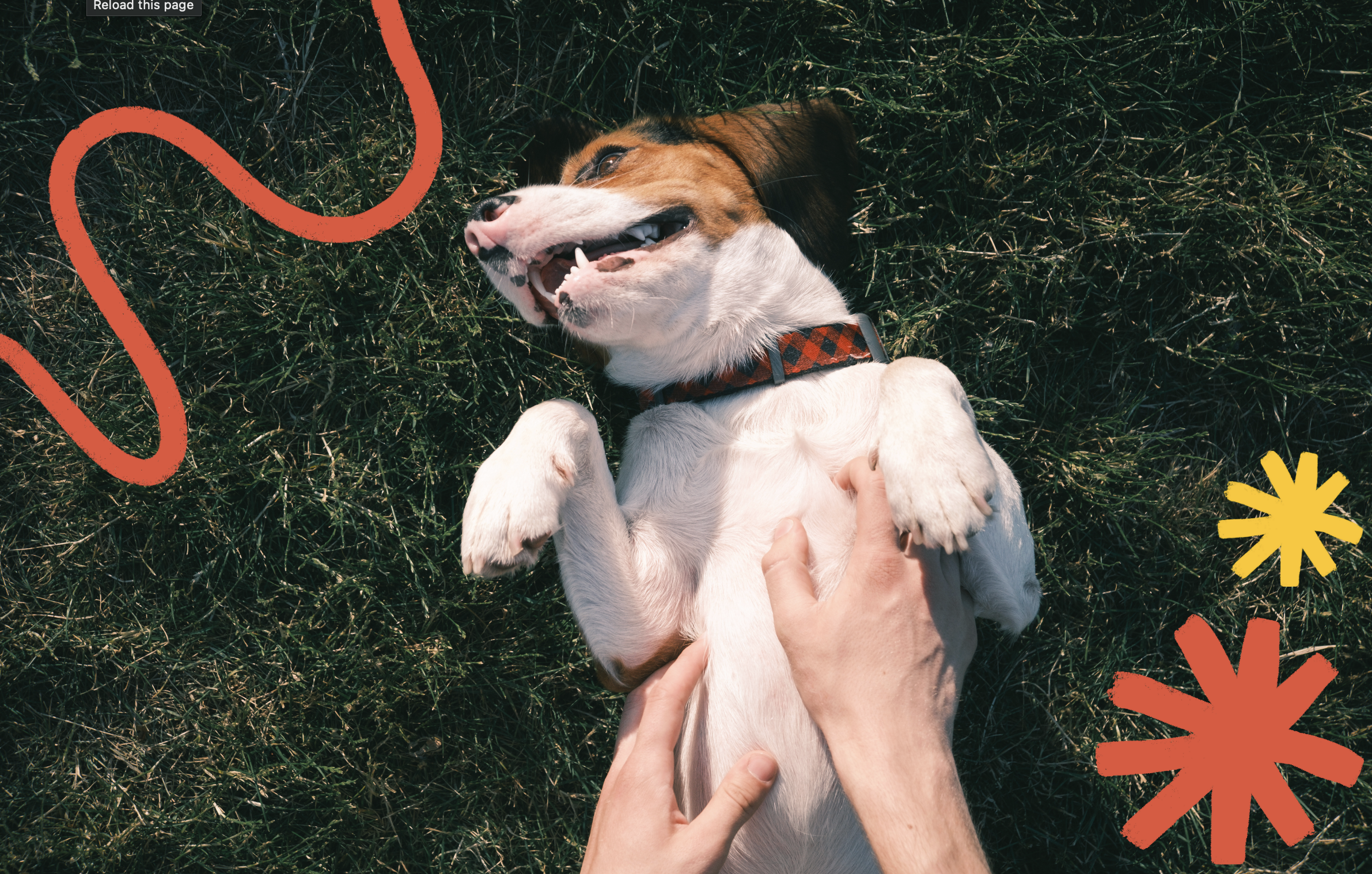
Does your dog have tummy trouble? Maybe their bathroom habits are anything but regular, or perhaps they're a bit gassy. Then, it might be time to consider probiotics for your dog — the belly-friendly bacteria that keep things running smoothly in your pup's digestive system.
For a quick gut check, here's a breakdown of probiotics, what they are, and why they matter for your furry friend.
At DOGTV, we like to be transparent: we have affiliate relationships with other companies. We may receive a commission on qualifying purchases made via the links in this article at no extra cost to you.
Signs your dog might need a probiotic
From stomach upsets and quirky bathroom routines to the occasional case of "I-ate-something-I-shouldn't-have," these cues speak volumes about your dog’s gut health.
- Digestive Distress: Sometimes, your dog’s tummy feels all topsy-turvy, and they might show it with diarrhea, constipation, or some extra toots. This usually means their gut flora is out of balance. (You know, those tiny living things, like bacteria and other microorganisms, that hang out in your dog’s gut, helping with food digestion and maintaining a properly working digestive system.)
- Stressful Times: Life got your doggo stressed out? New digs, new routine, new diet. These changes can wreak havoc on your dog’s digestion and cause diarrhea, and dog probiotics for GI problems can help during these transitions.
- Pill Problems: Medications like antibiotics could throw your dog's digestive system for a loop. Just like in humans, they can wipe out the good gut bacteria along with the bad. If your dog is on a course of antibiotics, adding probiotics to their diet can help maintain a healthy gut balance.
- Food Allergies: If your dog struggles with certain foods, dog probiotics for allergies can aid in promoting better digestion by making the gut less leaky and reducing inflammation.
Benefits of probiotics for dogs
When something's not quite right in your dog’s digestive world, dog probiotics for GI problems might be the secret ingredient to bring back its bounce.
- Improved Digestion: Probiotics can help ease a rumbly tummy and make mealtime more comfortable. They work by introducing good bacteria into your dog's gut, which aids in breaking down food and absorbing nutrients. This way, you also maximize mealtime by ensuring your dog gets all the goodness from their food.
- Reduced Inflammation: Stomach and intestinal inflammation can contribute to chronic health issues. Probiotics can help by calming down your dog’s body’s natural response to infections.
- Better Immune System: Probiotics help your dog's immunity by keeping the good bacteria in the gut balanced. A balanced gut makes your dog's chances of fending off illnesses stronger.
- Happy Belly, Happy Doggy: Did you know a healthy digestive system can influence your dog's mood and behavior? Simply put, the gut-brain axis directly connects your dog's belly and brain, and probiotics help maintain this connection. So, a tummy in tip-top shape helps the brain stay in a good mood, which means a happier dog enjoying a belly-rubbing good time!
Popular probiotics for dogs
Plain Greek yogurt can be a probiotic powerhouse. Mix it into your dog's meal or freeze it in an interactive toy like a lick mat for mental stimulation. Just make sure this doggy delight is without added sugar or artificial sweeteners.
Also, check out the following probiotic picks, which you can give as a treat or crumble over your dog's food.
- Native Pet Probiotic Powder: Made with a blend of natural ingredients like pumpkin seeds, bone broth, and all natural gut flora, this powder packs a big punch of support for your dog's digestive, gut, and immune health.
- Purina FortiFlora Canine Probiotic Supplement: Vets swear by it for good reasons. These dog probiotics for GI problems contain a potent probiotic strain, making it an ideal solution for dogs dealing with diarrhea or excess gas. It even boosts your dog's immune system with antioxidants.
Probiotics might be the right move for your dog if things get tricky in the tummy. However, while they're generally considered safe, individual reactions can vary. If introduced at high doses, probiotics for dogs may lead to bloating, gas, diarrhea, or constipation. Always check with your veterinarian for proper guidance and assessment of your dog’s needs!

 Jenny
Jenny